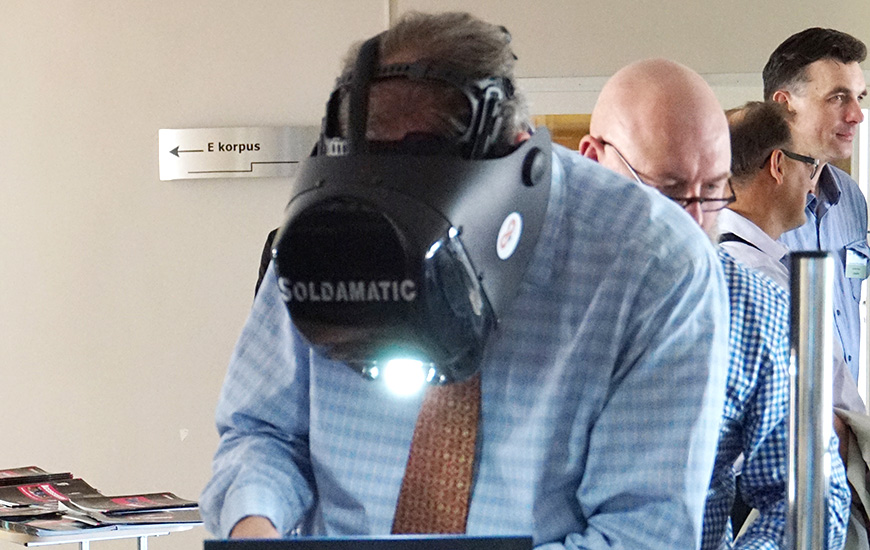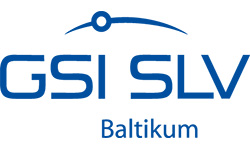International Association of Welding Technology • Blocks of face-to-face teaching and simulations supplement e-learning provision in the Baltic states
Distance learning leads to specialist welding engineer qualification

The International Association of Welding Technology (GSI) was established in 1999. It is a consortium of high-performing Welding Training and Research Institutes (SLVs) which together is able to offer over 80 years of experience in joining and test engineering. The aim of the GSI is to provide training and guidance in the welding sector and technology transfer both at home and abroad. It is active in over 50 countries. More than 300 of the 450 staff employed by the GSI are engineers and technicians.
The Association supports participants in its training and continuing education programmes in gaining career entry and pursuing professional development. Every year, the GSI conducts in excess of 20,000 training programmes and examinations in the field of welding. It also provides 1,500 courses for welding supervisory staff and 6,000 continuing education schemes for managers.
All teaching and training is carried out in compliance with standardised national technical stipulations and with the relevant standards and guidelines set out by the German Association for Welding and Related Processes (DVS), the EWF (European Federation for Welding, Joining and Cutting), and the IIW (International Institute for Welding). As long ago as 2007, the GSI received a "German Training Export Award" from the Federal Ministry of Education and iMOVE in recognition of the international demand for its innovative learning concepts.
The GSI SLV Baltikum ÖU is based in Tallinn in Estonia, where it works to promote welding training in the Baltic states, Russia and other Russian-speaking countries. The GSI Baltikum has joined forces with the e-learning department at the GSI in Germany to develop a course including integrated distance learning modules that that leads to the qualification of "International Welding Engineer (IWE)". The "computer-based training" (CBT) on offer encompasses images, animations, texts and films at various digital levels. Learning success is monitored via an Internet forum, email and telephone contact, and the evaluation of homework.
Since August 2016, the GSI SLV Baltikum OÜ has been hosting relevant local pilot courses in conjunction with companies from the region. The programme leading to the qualification of International Welding Engineer is a postgraduate advanced training scheme which involves around 440 hours of teaching. 100 of these hours are completed within the scope of distance learning. Upon application, participants receive an access code that enables them to use online materials to acquire theoretical contents via a process of self-directed learning. At the same time, they are provided with the contact details of specialist lecturers who are then available for consultation if required. Demand for opportunities to expand professional competences via distance learning is very high in the Baltic states and Russia.
The programme is supplemented by 60 hours of conventional face-to-face teaching at the Tallinna Lasnamäe Mehaanikakool, a vocational school in Tallinn. Participants receive instruction from fully-trained welding lecturers on a weekly basis, and simulations are also used to aid learning. Learners spend the remaining part of their training in workshops.
Simulations bring a whole range of benefits. They enable trainees to concentrate entirely on the manual skill forming the object of practice by eliminating the sources of error which may exert an influence in the workshop environment. Learners can focus entirely on their own behaviour during the welding process, something which is crucial in terms of achieving a successful outcome.
The GSI Baltikum uses a simulation device manufactured by Soldamatic. This equipment has been specially designed to assist with gas-shielded welding, a technique which is particularly common. During the simulation, the machine uses a coaching system to support the practical exercises being undertaken. It provides corrections and produces a comprehensive evaluation of every weld joint completed. All tasks can be repeated an unlimited amount of times without consuming materials.
On 28 February 2017, the first 21 participants from the Baltic states and Russia sat their examinations in Tallinn. Following the end of the pilot phase in September 2017, the entire learning package was presented at the “Welding and Cutting” Trade Fair complete with all its different course variations. The programme is available in English, Turkish and Russian. As well as cooperating with companies with skilled worker requirements in the relevant area, the GSI SLV Baltikum OÜ is also seeking to work with universities in the Baltic states, Russia and other Russian-speaking countries in future.

This sucess story was first published in the following iMOVE publication:
Developing Skills for Employability with German Partners • 8 Case Studies from the Sector of E-Learning Solutions and Learning with Digital Media
GSI
GSI - German Welding Institute is member of the iMOVE provider database.

